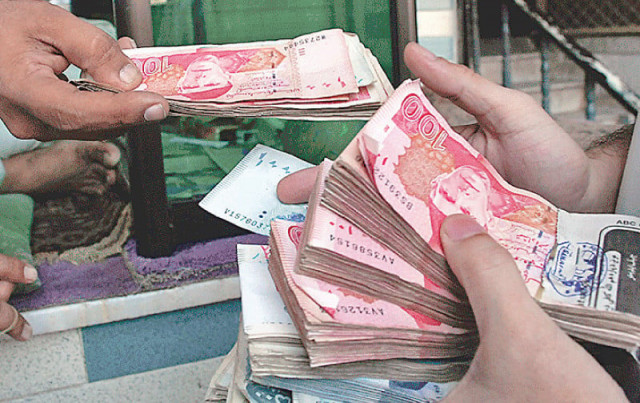Research house sees higher growth
Anticipates higher economic growth at 3%, lower current account deficit at $4 billion in current fiscal year 2023-24

A Pakistan-based research house has disagreed with the International Monetary Fund’s (IMF) economic forecast, anticipating comparatively higher economic growth at 3% and a lower current account deficit at $4 billion in the current fiscal year 2023-24.
In a commentary titled ‘IMF First Review of SBA - GDP Growth, Inflation, Current Account estimates adjusted downwards’, Topline Research’s Senior Analyst Sunny Kumar said the IMF has revised its projected GDP growth from 2.5% to 2% for FY24. “We estimate Pakistan’s GDP to clock in at around 3% in FY24.”
The IMF has also revised down its Current Account Deficit (CAD) forecast to 1.6% of GDP ($5.7 billion) from an earlier projection of 1.8% of GDP ($6.4 billion) for FY24. “We estimate CAD to clock in at 1.1% of GDP ($4 billion) in FY24.”
The global financial institution lending expects inflation to remain elevated. However, with appropriately tight policies, it could decline to 18.5% (earlier 16.2%) by the end of June 2024, with an average inflation rate of 24% (earlier 26%) for FY24.
The research house, however, projected an inflation reading lower than the global institution. “We expect inflation to be 17.5% by the end of June 2024, with an average inflation rate of 23% for FY24.”
Taking cue from the projected downturn in the inflation reading, Kumar said the house anticipates a 700 basis points cut in the policy rate in 2024, reaching 15% by December 2024 compared to the record high of 22% since June 2023.
The IMF now expects gross reserves to be $9.1 billion by June 2024, up from the earlier estimate of $8.9 billion. “We anticipate reserves to be $8-10 billion by June 2024.”
He said the IMF executive board has approved the first review for Pakistan under the Stand By Agreement (SBA), which is likely to lead to the release of a $700 million tranche. This will take the total disbursement by the IMF under the SBA programme to $1.9 billion to Pakistan and will help support foreign exchange reserves in the country.
“We believe that after the IMF board approval, more dollar funding for Pakistan is likely from bilateral, multilateral, and other sources. This will also facilitate rollovers, supporting foreign exchange reserves and bringing stability to the currency.”
The higher inflows will help liberalise imports and support comparatively higher economic growth and support reducing the current account deficit as well.
Read Pakistan’s growth to hit 2.4% in FY25: WB
In its press release the other day, the IMF stated that economic activity has stabilised, though the outlook remains challenging and contingent on the implementation of sound policies.
The Fund has again stressed that the continued timely and consistent implementation of programme policies remains critical, with no room for slippage.
This requires strict adherence to fiscal targets while protecting social spending, a market-determined exchange rate to absorb external shocks, and further progress on structural reforms to support stronger and more inclusive growth.
The IMF also appreciated Pakistan’s authorities for strengthening the fiscal position in 1QFY24. The IMF expects a budget balance of -7.7% of GDP and a primary surplus of 0.4% of GDP for FY24.
Following the Executive Board discussion, Antoinette Sayeh, Deputy Managing Director, and Chair said “the inflation remains high, affecting particularly the more vulnerable, and it is appropriate that the State Bank of Pakistan (SBP) maintains a tight stance to ensure that inflation returns to more moderate levels.”
Pakistan also needs a market-determined exchange rate to buffer external shocks, continue rebuilding foreign reserves, and support competitiveness and growth. In parallel, further action to address undercapitalised financial institutions and, more broadly, vigilance over the financial sector is necessary to support financial stability.
“Boosting jobs and inclusive growth in Pakistan requires continuing protection of the vulnerable through Benazir Income Support Programme (BISP) and accelerating structural reforms, most notably around improving the business environment and levelling the playing field for investors, advancing the State Owned Enterprise (SOE) reform agenda and safeguards related to the Sovereign Wealth Fund; strengthening governance and anti-corruption institutions; and building climate resilience.”
Sayeh said the authorities took challenging steps to bring both electricity and natural gas prices closer to costs in 2023. Continuing with regularly scheduled adjustments and pushing cost-side power sector reforms are vital to improving the sector’s viability and protecting fiscal sustainability.
Published in The Express Tribune, January 13th, 2024.
Like Business on Facebook, follow @TribuneBiz on Twitter to stay informed and join in the conversation.



















COMMENTS
Comments are moderated and generally will be posted if they are on-topic and not abusive.
For more information, please see our Comments FAQ